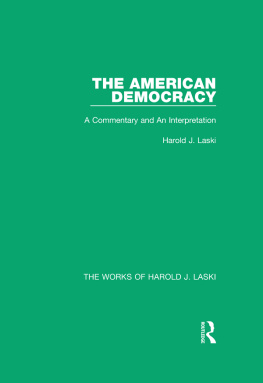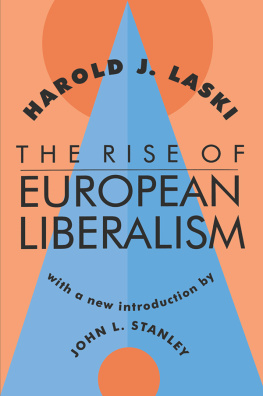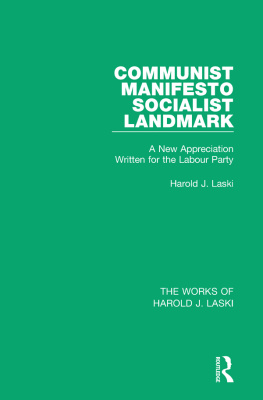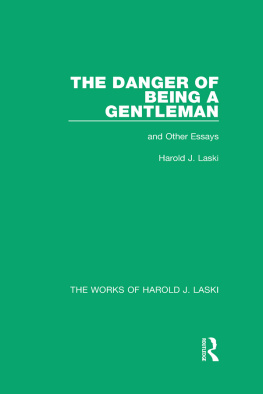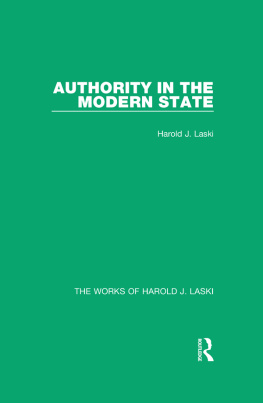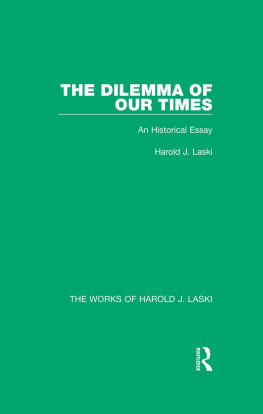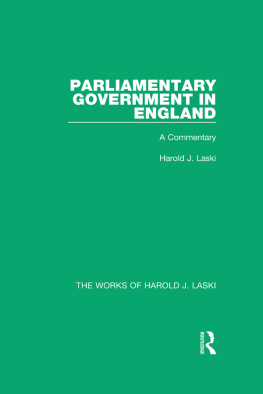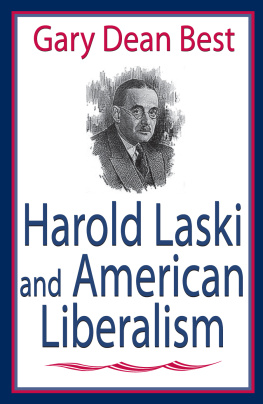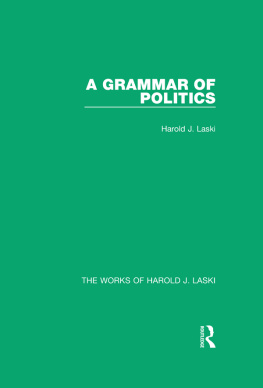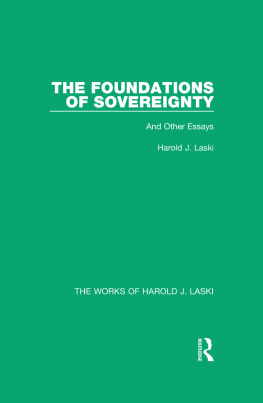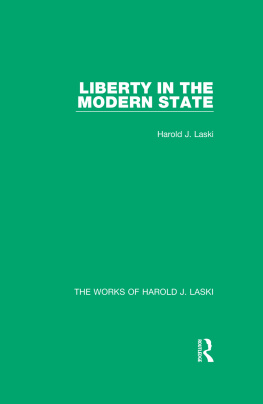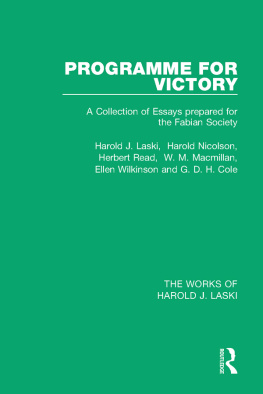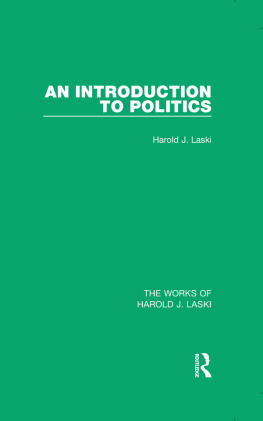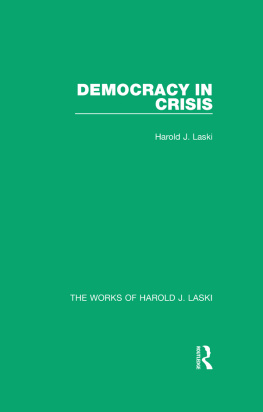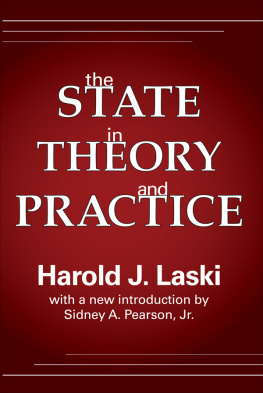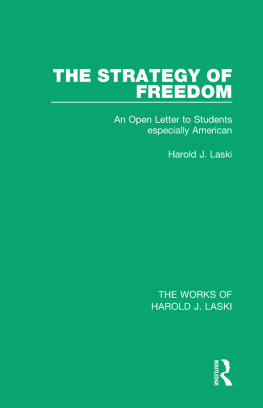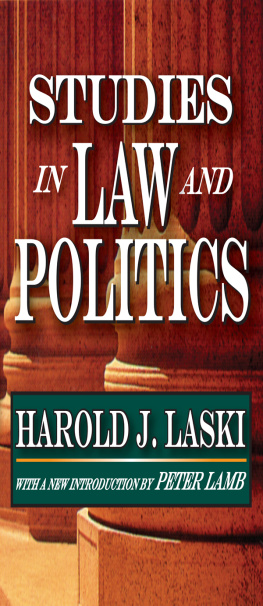First published in Great Britain in 1949 by George Allen and Unwin Ltd
This edition first published in 2015
by Routledge
2 Park Square, Milton Park, Abingdon, Oxon, OX14 4RN
and by Routledge
711 Third Avenue, New York, NY 10017
Routledge is an imprint of the Taylor & Francis Group, an informa business
1949 George Allen and Unwin Ltd
All rights reserved. No part of this book may be reprinted or reproduced or utilised in any form or by any electronic, mechanical, or other means, now known or hereafter invented, including photocopying and recording, or in any information storage or retrieval system, without permission in writing from the publishers.
Trademark notice: Product or corporate names may be trademarks or registered trademarks, and are used only for identification and explanation without intent to infringe.
British Library Cataloguing in Publication Data
A catalogue record for this book is available from the British Library
ISBN: 978-1-138-81912-2 (Set)
eISBN: 978-1-315-74273-1 (Set)
ISBN: 978-1-138-82226-9 (Volume 15)
eISBN: 978-1-315-74255-7 (Volume 15)
Publishers Note
The publisher has gone to great lengths to ensure the quality of this reprint but points out that some imperfections in the original copies may be apparent.
Disclaimer
The publisher has made every effort to trace copyright holders and would welcome correspondence from those they have been unable to trace.
I N A sense this book has been a generation in the making; for when I first began to teach at Harvard thirty years ago, I realized that, as a European, I had entered upon an experience wholly different in character from anything I had known. I first began to think about writing it when I was in America in 1937; and, three years later, during the Battle of Britain, I began to try and put it into organized form. No one, I venture to believe, knows its defects more fully than I do. As it has got written, I have realized more and more how disproportionate is the fulfilment to the task I had set myself. There is so much more in America than any one man can know. There is so much in it, both of beauty and ugliness, of good and evil, that he cannot put into words. I can plead only two things in defence of the result; first, that this book is written out of deep love of America, and, second, that I have done my best to make intelligible to Europeans, and, above all, to Englishmen, why America arouses that deep love.
America is in large part Americans; and my debts to them are quite beyond repayment. First of all, I owe much to my friends, Mr. Justice Frankfurter and Dr. Alfred E. Cohn, with whom I have discussed these matters for more than half my life; and, in a younger generation, to Max Lerner, from whom I have learned much. I do not know how to express the thanks I feel that a happy fortune gave me the high privilege of intimacy with those great judges, Oliver Wendell Holmes and Louis Brandeis; nor can I forget the magnanimity with which the late Franklin D. Roosevelt allowed me to see the working of the presidential system from within. I know, too, that I have been, in a real sense, the pupil of Professor Morris R. Cohen, and that I owe many insights to the fact that I taught at Harvard when Turner and Channing and S. E. Morison were interpreting for me, in their different ways, what I myself was experiencing. I owe much, too, to the first of my American friends, B. W. Huebsch, to Max Lowenthal, Roger Baldwin, Harlow Shapley, E. R. Murrow, Robert and Helen Lynd, Samuel Berger, Frank Buxton, Merle Curti, Thomas Reed Powell, and Charles and Mary Beard, and, far from least, to the care and generosity of Miss J. R. Heringman of the Viking Press. I wish I could recall the countless others, students, taxi-drivers, railroad conductors, lawyers and doctors, engineers and business men, who have helped me to form the generalizations I have ventured to make here. But a book of this kind is always the product, really, of many peoples thinking, and I can only hope that I have not omitted anyone whose name ought to be here. For the result, of course, I only am responsible; most of whatever merit it has it owes to those who, consciously or un-consciously, have helped me to shape it.
I owe debts, also, to English friends, above all to my colleague H. L. Beales, and to my former colleague, Professor D. W. Brogan of Cam-bridge, upon whose unique fund of Americana I have been able to rely for years. From Sydney Herbert of University College, Aberystwyth, I have had much assistance by discussion; and, though I knew him only in his last years, from talk with Lord Bryce about his hopes of America in the eighties of the last century, and his fears for it after the First World War. My gratitude to R. T. Clark and C. A. Furth is very great, not least for their infinite patience.
I have been much helped, also, by books; and I must especially emphasize what I owe to the writings of Professor Schlesinger of Harvard University, to Professor Commons and his colleagues for their Documentary History of American Industrial Society, to Professor E. S. Corwin, Professor Perry Miller, Professor C. E. Merriam, to Professor R. B. Perry for his great work on William James, to Professor Bernhard J. Stern for his remarkable writings on American technology and medicine, to Dr. W. E. B. DuBois and to Professor G. Myrdal, and to Professor M. L. Hansen. I must record, too, my gratitude to Professor M. Rostovtzev whose monumental Social and Economic History of the Hellenistic World has been a continuous source of illumination. Like all students of American history, I have learned a great deal from the writings of the great Adams dynasty, above all from that unique Diary of John Quincy Adams of which a modern reprint is so badly needed. I owe many insights, especially on the American Revolution, to the writings of my friend Louis B. Hacker, and, on American Literature, to Professor F. O. Matthiessens American Renaissance. Other debts, I have, I hope, sufficiently acknowledged in the notes to this work.
I add that the dedication of this book means far more than its words imply. But there is gratitude too intimate even to search for expression.
| Little Bardfield, | H. J. L. |
| Essex. |
The American Democracy
M OST of the heritage of past civilizations has gone into the making of American democracy. Europe and the Far East have alike nourished its rise and development; it has strains from the African continent which lie deep in its foundations. In the four and a half centuries since it emerged into the historic consciousness, it has passed from the epoch in which it was an object of colonial ambition to the epoch where it stands, independent, at the summit of political power. And in that momentous period there can be no sort of doubt but that its impact has changed the outlook of mankind wherever there has been the power to reflect on the meaning of human affairs. No state, until our own day, has done so much to make the idea of progress a part of the mental make-up of man. No state, either, has done more to make freedom a dream which overcame the claims both of birth and of wealth. It has been, in an impressive way, a refuge for the oppressed, alike in the political and in the religious field, for at least the period since the Pilgrim Fathers landed on the rocky shores of New England. It has offered to the common man an opportunity of self-advancement such as he has never known elsewhere until the Russian Revolution of 1917. Few countries have ever developed material resources on so vast a scale. Few countries have ever been able to move so swiftly from the circumference to the centre in their impact upon civilization. If it has often been hated and even more often envied, there has always been a perception, even in the hatred and the envy, that it occupied a unique position among the nations of the world. Now it stands close to the zenith of its fortunes. For something like the next generation it is difficult to doubt that world politics will be set in the context of American purposes. Upon the use it decides to make of its overwhelming productive power, no small part of the fate of Europe and Asia, perhaps of Africa as well, is bound overwhelmingly to depend.

